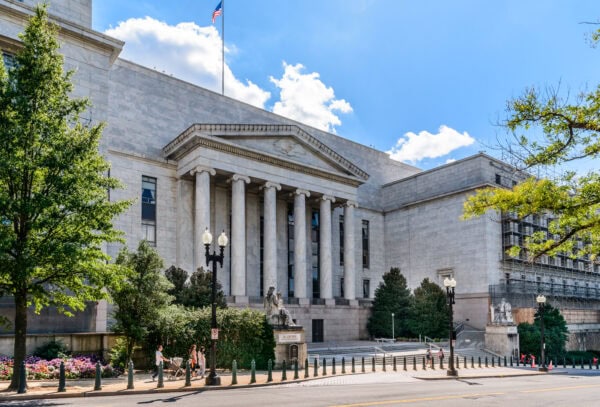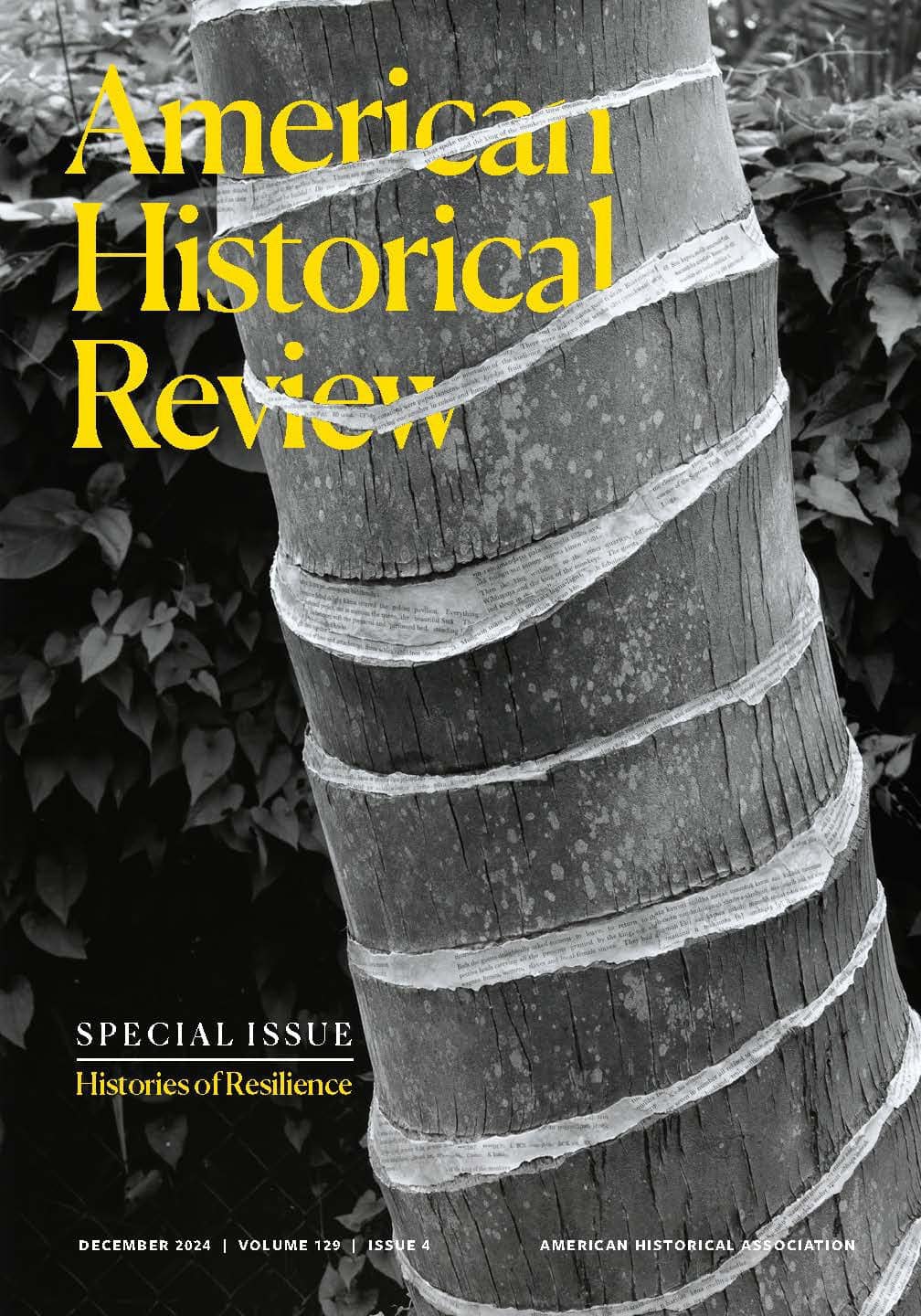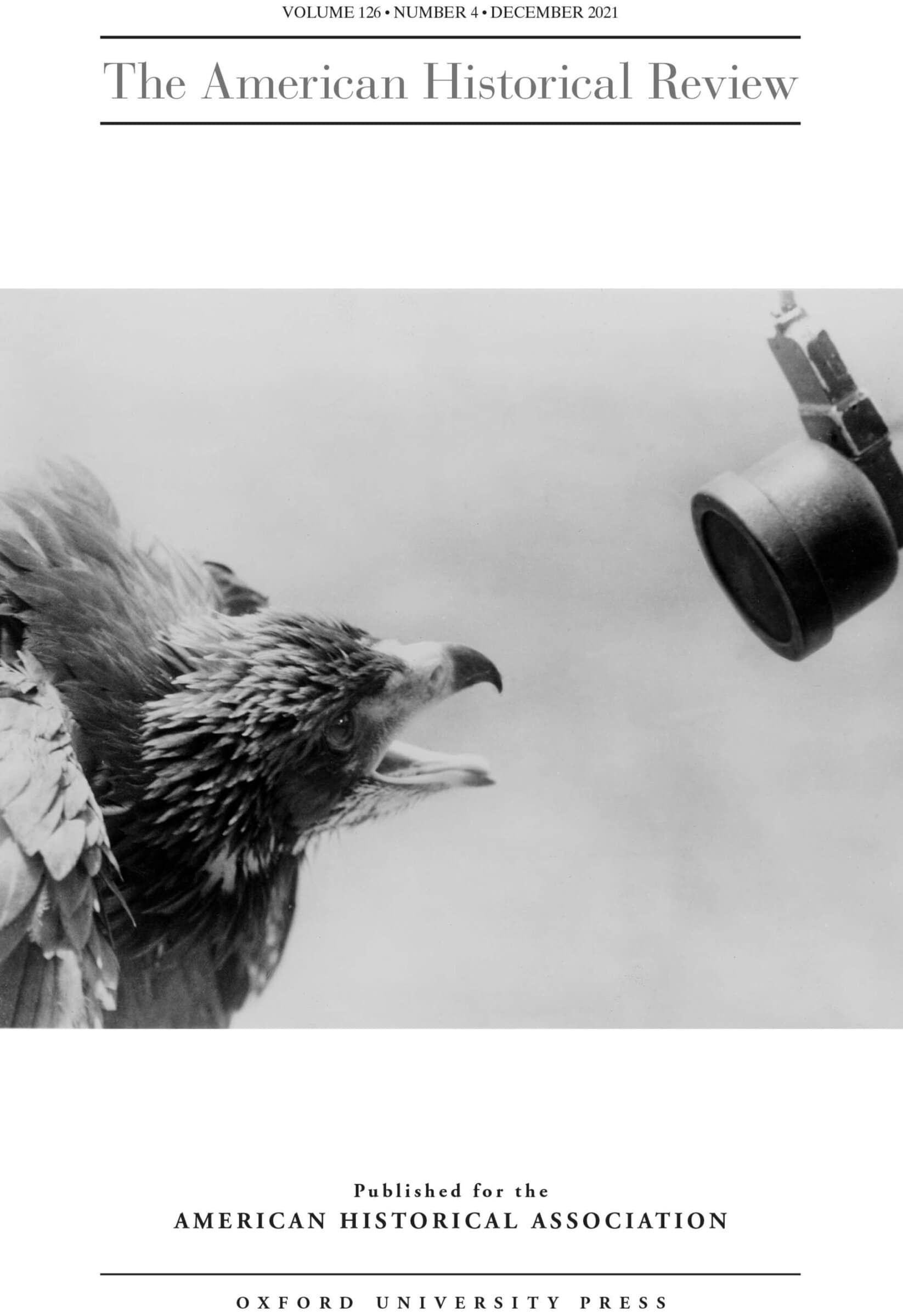In July 2023, the AHA relaunched our Congressional Briefings series, which had been on pause during the worst of the COVID-19 pandemic. Since then, nearly a dozen briefings have brought historians to Capitol Hill to share their expertise with congressional staff on today’s major policy issues. In the first year of the program’s revival, congressional staff have learned about foreign affairs issues such as the southern border, US-China relations, sanctions, and American military alliances; public infrastructure like housing and transportation; civil rights concerns such as gerrymandering and academic freedom; and policy regulating technologies such as social media and artificial intelligence. Even among such a diverse array of topics, a few themes still emerge from the last year.

Most AHA Congressional Briefings take place at the Rayburn House Office Building. Domenico Convertini/Flickr/CC BY-SA 2.0
Briefing topics are chosen with consideration for their relevance and timeliness. When the door plug blew off an Alaska Airlines flight in January, it called attention to aviation safety regulations. With increasing scrutiny of self-driving cars and the February 2023 train derailment and chemical spill in East Palestine, Ohio, still fresh in the public’s mind, a briefing on transportation safety regulations was welcomed. Panelists Janet Bednarek (Univ. of Dayton), Jeff Davis (Eno Center for Transportation), and Peter Norton (Univ. of Virginia) each emphasized that regulations in the transportation sector typically only followed significant, often fatal accidents, a trend clearly reflected in current events. In the wake of major campus protests over Israel’s war in Gaza, and with consideration for recent government intervention in academic affairs and curricular content, a briefing on academic freedom in July provided historical context to frame the choices before universities and policymakers. Following David M. Rabban’s (Univ. of Texas School of Law) explanation of the judicial history of academic freedom as a subset of free speech, and David A. Bell’s (Princeton Univ.) history of academic freedom policies in practice, Natalia Mehlman Petrzela (New School) confronted the present moment directly. She discussed how students and professors grappled with controversial rhetoric around the Middle East, a “turn towards the therapeutic” in how universities discuss campus safety, and present discourse on what rhetoric makes students feel unsafe and what makes them uncomfortable.
Sanctions are a Swiss Army knife, a useful but limited tool.
Panelists often focus on what policies have not worked just as much as those that have been successful. In February’s briefing on international sanctions, Bruce W. Jentleson (Duke Univ.) explained that “sanctions are a limited instrument, [and] they need to pursue a limited objective.” His presentation characterized sanctions as a “Swiss Army knife,” a useful but limited tool. Jentleson introduced numerous examples of sanctions failing to achieve their goals or backfiring. However, panelists affirmed the symbolic value of sanctions, saying that they send a message to the country under sanction, the international community, and the voters of the country imposing the sanctions. In May’s briefing on gerrymandering, Julian E. Zelizer (Princeton Univ.) spoke on the “possibilities and limitations” of redistricting reform. He argued that reform would not do much to ameliorate the political polarization that has overtaken the electorate, or even prevent the practice of gerrymandering. He discussed the benefits redistricting reform could provide by making elections more competitive, which would increase civic participation and make legislators more responsive to voters’ concerns. In November’s briefing on housing policy, D. Bradford Hunt (Loyola Univ. Chicago) described the failures of the public housing policies of the 1970s, highlighting the disincentives for improvement created by large housing projects and their funding structures.
Our panels establish a strong foundation to present the history of these issues. At the briefing on transportation regulations, Davis began by explaining the constitutional basis for federal transportation regulations, originating in the federal government’s power to regulate foreign and interstate commerce and to provide for the common defense and general welfare of the public. From there, he identified the ninth law ever passed by Congress, a transportation regulation: the nationalization of all lighthouses and declaration that a new one be built at the entrance to the Chesapeake Bay. The briefing on the history of gerrymandering went back even further than Elbridge Gerry, the namesake of the term, and his efforts to draw favorable legislative maps for the Federalist Party in 1812. Joanne Freeman (Yale Univ.) described how the practice evolved over the early years of the republic. She explained that the concept of legislative districts was fluid, and varied state to state, but as partisanship increased, gerrymandering was increasingly employed to secure advantages for the party in power.
Taking an expansive approach to the history of an issue has been a useful tactic as the AHA has tried to get ahead of new and emerging regulatory challenges with these briefings. Artificial intelligence is a new technology with few obvious parallels, and governments have struggled to regulate it. At October’s briefing on the topic, panelists demonstrated that the technology’s history is longer than one might expect, with origins in the Cold War. Jeffrey R. Yost (Univ. of Minnesota) and Janet Abbate (Virginia Tech) used this background to describe some of AI’s limitations. Yost emphasized AI’s inability to appreciate context and nuance, a ubiquitous critique of today’s large language models that were also invoked about a major medical diagnostic AI system of the 1970s that struggled to appreciate some of the broader detriments of its suggested courses of treatment. Abbate highlighted moral concerns around AI, explaining that even if systems have been built with verbal intelligence, they lack social intelligence and moral reasoning. She framed its propensity to “hallucinate” supposed facts as a function of its purpose to deceive users into thinking it is human. Matthew Connelly (Columbia Univ.) offered a case study, discussing using AI to assist in the declassification of government documents. Recent legislative and judicial actions connected to social media including X and TikTok inspired a briefing on the history of media regulation in June.
As with AI, social media’s fast and frequent evolutions have made it a tricky industry to regulate. At first glance, there is little precedent for policy on technology like this. The US Supreme Court has been dealing with exactly that challenge, deciding cases like the 2020 suspension of a high school student over posts on Snapchat and the 2024 lawsuits over attempts to regulate content moderation by Texas and Florida. Despite the short history of social media itself, panelists went as far back as the 1790s with the government’s role in regulating the postal service, telegraph networks, radio, and television to provide context and help policymakers make sense of how they might address social media, before exploring the development of the internet, smartphones, and social networks.
Even if systems have been built with verbal intelligence, they lack social intelligence and moral reasoning.
Some of the most interesting moments from the last year of briefings came from attempts to reframe long-standing issues through a new lens. At the November briefing on federal housing policy, N. D. B. Connolly (Johns Hopkins Univ.) began with Lorraine Hansberry’s A Raisin in the Sun to introduce his primary question, “What is a house?” Connolly argued that American housing policy answered this question in four ways: “policies that understand a house as shelter, policies that cast it as an investment, policies that consecrate the house as a cultural symbol, and policies that treat the house as a base unit of national prosperity.” Connolly’s question addressed both the standards and amenities required to amount to a proper home and what homeownership represents symbolically, and how these have each changed over time. At May’s briefing on transportation policy, Norton gave a sobering assessment of the dire state of traffic fatalities in the United States, before reminding the audience that conversations on traffic fatalities have been ongoing and have changed little since the invention of the automobile. Quoting a “cabinet-level secretary” who called for the “annual carnage on American streets to be checked” in order to meet the “crisis of tens of thousands of [traffic] deaths annually,” he revealed that the words came from then commerce secretary Herbert Hoover in 1924. Norton similarly reframed the debate over traffic policy as a more straightforward question: whether streets should be for cars at the exclusion of pedestrians or vice versa. These two examples exemplify what the briefing program brings to the Capitol: a fresh perspective using lessons from the past, looking at the long arc of history to frame the decisions before today’s policymakers.
These briefings have been attended by staffers and interns from both congressional chambers and both parties; from cabinet departments, regulatory agencies, and the White House; from advocacy and direct service nonprofits; and from universities and historical associations across the country. They are an eager audience, always posing more questions than there is time to address, and often staying behind to chat with panelists and gain further insight into the issues they work on. Attendees have reported that the briefings have informed their work and how they think about policy, influencing conversations and decisions made to improve the lives of their constituents. Little by little, these briefings are bringing historical consciousness into the nation’s policy, an effort the AHA is eager to continue.
This work is licensed under a Creative Commons Attribution-NonCommercial-NoDerivatives 4.0 International License. Attribution must provide author name, article title, Perspectives on History, date of publication, and a link to this page. This license applies only to the article, not to text or images used here by permission.



